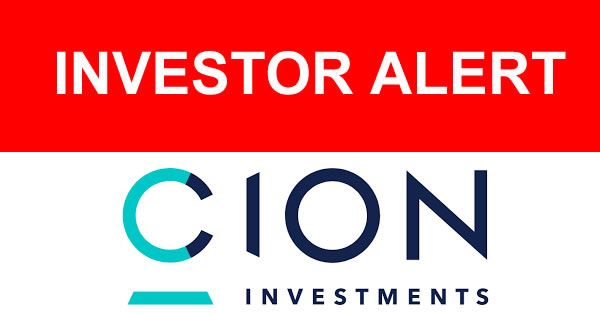Although the most recent sponsor stated value for CION Investment Corporation is $8.34/share, the most recent trading range reported by a secondary market source was $5.95/share to $6.19/share according to Central Trade and Transfer. This non-traded business development company (BDC) focusing investments in senior secured debt for U.S. middle markets companies with earnings of $50 million or less. In January 2017, the original offering price of $10.10/share was reduced to $9.57/share and the sales load was reduced from 10% to 5%, which, in turn, reduced dealer manager fees from 3% to 2% and selling commissions from 7% to 3%. Many investors may have been induced by the promises of a 7.65% annual distribution, and some financial advisors and broker-dealer firms offering this and similar investors do not always properly disclose the material risks associated with these investments or product structures as they typically involve a high degree of risk and they are typically illiquid. It is also notable for investors that in March 2017, the Managing Director and Chief Credit Officer resigned from CION Investment Corporation.
CION Investment Corporation Suitability and Supervision Issues
Table of Contents
These investments are generally offered by financial advisors working at independent broker-dealer firms. They represent one type of Direct Participation Programs (DPPs). Non-Traded BDCs are typically risky illiquid alternative investments that the United States Securities and Exchange Commission (SEC) define as a “Reg D” offerings also known as “private placement.” The reference to Regulation D provides exemptions from the typical registration requirements of Section 5 of the Securities Act of 1933.
A brokerage firm selling a private placement still has a duty to conduct a reasonable investigation of any securities it recommends. The types of problems that FINRA found in the past with regard to some private placements were significant and include outright fraud and sales practice abuse in Regulation D offerings. With private placements, the firm recommending the investment to a customer must also conduct a reasonable investigation into the issuer and its management, the business prospects of the issuer, the assets held by or to be acquired by the issuer, the claims being made by the issuer, and the intended use of the offering. Failure of a firm to adequately investigate a given private placement can result in a violation of antifraud provisions of federal securities law, as well as FINRA Rule 2010 (adherence to just and equitable principles of trade) and Rule 2020 (prohibiting manipulative and fraudulent devices). In addition to various cases and enforcement actions cited in Regulatory Notice 10-22 (and its endnotes), another sweep by FINRA resulted in more crackdowns on firms (and individuals) that did not conduct a reasonable investigation before selling private placements to customers.
Also, with respect to private placement investments, broker-dealer firms still must supervise their brokers in the investigation and recommendation being made to the customer. In addition to the typical supervision duties that a broker-dealer firm has over its registered representatives, as required by FINRA Rule 3010, private placements necessitate additional supervisory procedures. As reminded by FINRA Regulatory Notice 10-22, those additional supervisory procedures must be reasonably designed to ensure that a broker-dealer firm’s registered representatives: (1) engage in an inquiry that is sufficiently rigorous to comply with their legal and regulatory requirements; (2) perform the analysis required by FINRA Rule 2111 (formerly, NASD Rule 2310); (3) qualify their customers as eligible to purchase securities offered pursuant to Regulation D; and (4) do not violate the antifraud provisions of the federal securities laws or FINRA rules in connection with their preparation or distribution of offering documents or sales literature. Importantly, each Reg. D offering must be properly supervised “before it is marketed to other firms or sold directly to customers.”
How can CION BDC Investors Recover Losses?
For some investors, a private FINRA arbitration customer dispute enables them to bring a claim and potentially recoup their investment losses. These customer disputes typically involve only paper discovery and no depositions, and they are a faster and more efficient alternative to traditional court litigation, as they provide a private forum to resolve disputes more quickly and efficiently.
About Haselkorn & Thibaut, P.A.
Haselkorn and Thibaut, P.A. is a nationwide law firm specializing in handling investment fraud and securities arbitration cases. The law firm has offices in Palm Beach, Florida, on Park Avenue in New York, as well as Phoenix, Arizona and Cary, North Carolina. The two founding partners have nearly 45 years of legal experience.
Haselkorn & Thibaut, P.A. has filed numerous (private arbitration) customer disputes with the Financial Industry Regulatory Association (FINRA) for customers who suffered investment losses relating to issues similar to those matters mentioned above. There are typically no depositions involved, and those cases are typically handled on contingency with no recovery, no fee terms.
Experienced attorneys at Haselkorn & Thibaut, P.A. are available for a free consultation as a public service. Call today for more information at 1-888-885-7162 or visit our website and email us from there at www.wordpress-1550703-6001974.cloudwaysapps.com.


